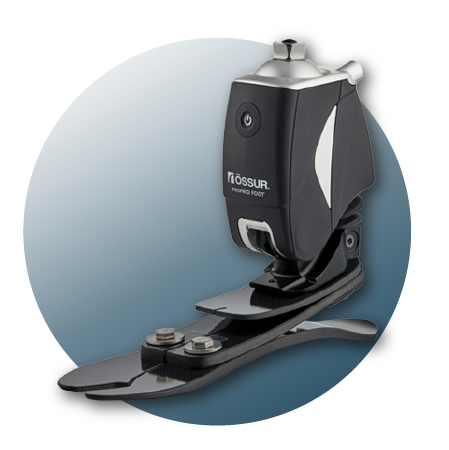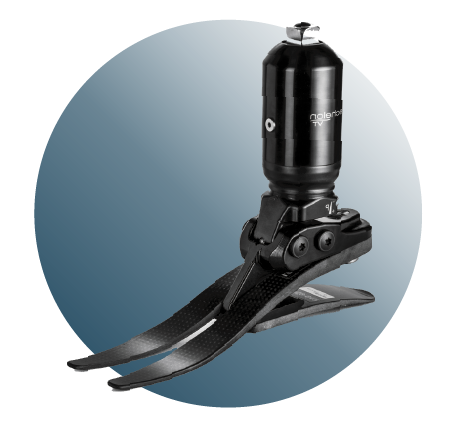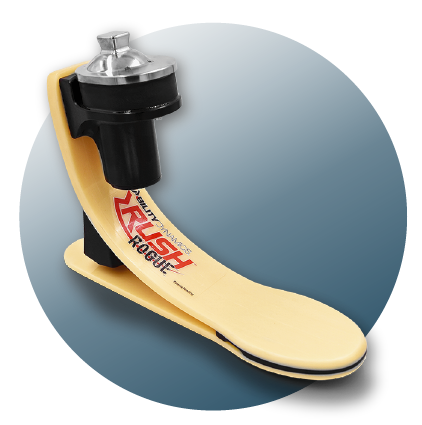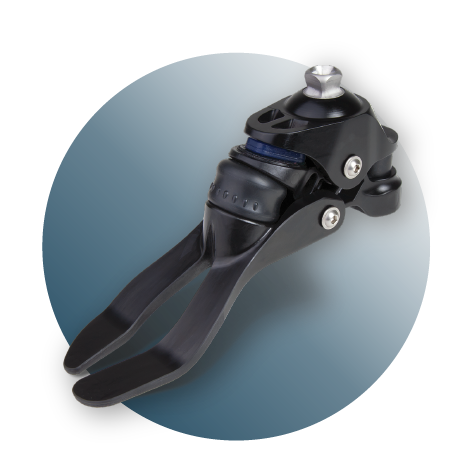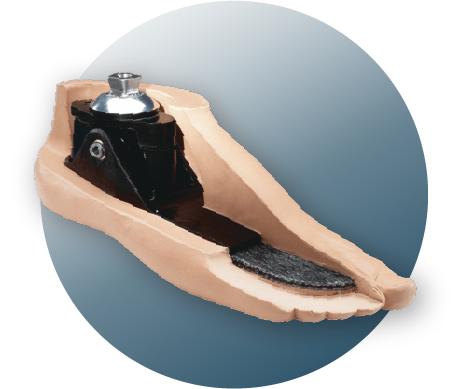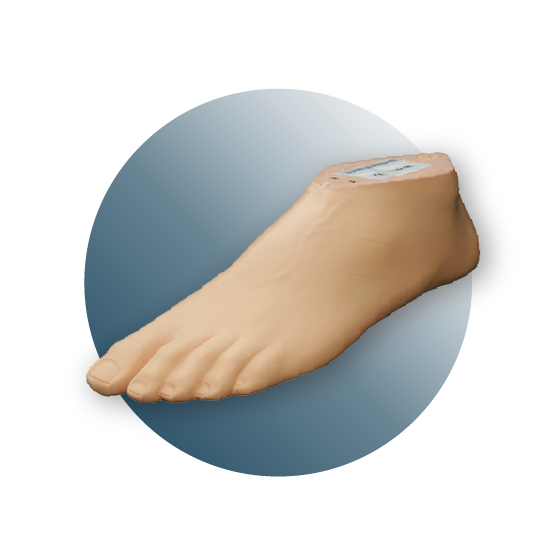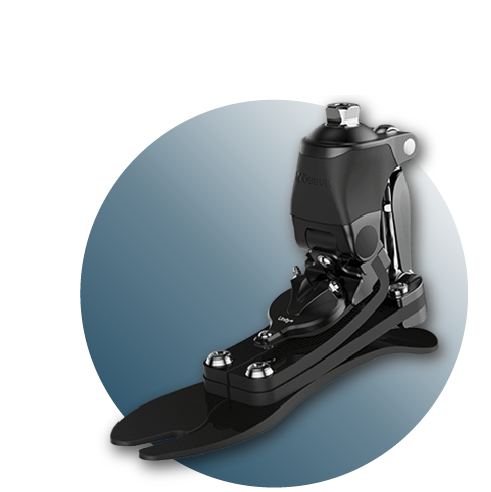
Externally Powered
A powered foot and ankle can normalize gait, offer flexible ankle movement, and center alignment. The device mimics the function of a natural ankle through sensors that calculate how much power is needed. It includes preferred walking velocities and has biomechanical patterns that are similar to people without an amputation.
